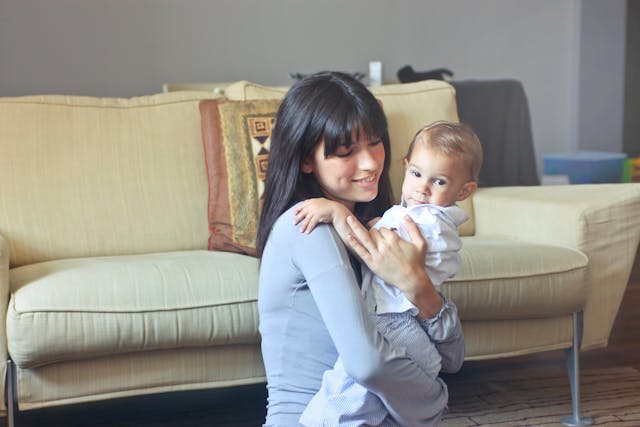Exploring the Impact of Hosting an Au Pair on Family Dynamics and Cultural Understanding

Hosting an au pair can profoundly influence family dynamics and cultural comprehension. This study delves into the effects of welcoming an au pair into a household, revealing insights into improved communication, enhanced cultural exchange, and strengthened familial bonds. Through firsthand experiences and qualitative analysis, it underscores the transformative potential of au pair arrangements in fostering mutual understanding and enriching the fabric of family life.
Introduction to the World of Au Pairs
At its core, an au pair program is a unique cultural exchange that offers a lot more than just live-in childcare. An au pair typically engages with a family by providing help with children and sometimes light housework while participating in the everyday life of the host with the main goal of cultural exchange. It’s an age-old tradition that has seen a modern revival, as families across the globe recognize the great value that such a relationship provides, both for the au pair and the host family. Young individuals from diverse cultural backgrounds become a part of the family unit for a certain period, typically a year. During this time, they contribute to the family dynamics while also having the opportunity to explore a new country, learn the language, and immerse themselves in the local culture. For families considering embarking on this enriching journey, taking the first step might entail researching reputable programs where they can find an au pair who is a perfect fit for their household dynamic.

The Cultural Exchange Experience
Cultural exchange is more than just a component of the au pair experience—it’s the fundamental essence of it. By living and working closely together, families and au pairs engage in a deep, meaningful form of cultural interchange. This is not limited to sharing linguistic knowledge but also involves exchanging values, beliefs, and customs. The benefits are multifaceted. Families gain insights into new cultural practices, helping to broaden their worldviews and foster greater global awareness. For the au pair, the stint as a temporary family member offers a secure environment to learn a new language and explore different social norms. This bi-directional flow of knowledge not only enriches personal experiences but also builds cultural bridges that often last long after the au pair engagement ends. Educational resources emphasize the importance of such experiences for personal and career development.
Educational Advantages for Children
Children equipped with early exposure to different cultures are at an advantage in an increasingly connected world. They learn to communicate across cultural barriers and develop a sense of international mindedness. This is particularly true regarding language learning, which is most effective during the early years when children’s brains are still developing. By conversing with the au pair in their native language, children acquire new linguistic skills organically. They pick up on sounds, structures, and vocabulary simply by engaging in daily conversation. This natural exposure often leads to a profound understanding and command of a second language, something that structured classroom studies may not easily replicate. Furthermore, insights into different worldviews enhance children’s educational breadth, encouraging them from a young age to think critically and appreciate diversity. This formative experience lays the foundation for them to become active, empathetic global citizens.
Building International Bonds and Friendships
Welcoming an au pair into the home often results in more than just a cultural exchange; it nurtures enduring international bonds and friendships. As families and au pairs share their daily lives, mutual understanding and affection grow. Many host families and au pairs report feeling like they’ve gained a new family member by the end of their experience. These connections can last well beyond the au pair’s stay, yielding lifelong friendships that span continents. Such relationships not only bring joy and comfort but also create a personal international network that can be invaluable for travel, education, and career prospects in an increasingly globalized world.
The Economic Aspect of Hosting an Au Pair
Sometimes, the decision to host an au pair is driven by practical economic considerations. In many regions, the cost of traditional childcare options—be they daycare facilities or private nannies—is quite high. Hosting an au pair, on the other hand, often comes with a lower financial outlay. Au pairs typically receive room and board along with a modest stipend, an arrangement that can be financially more accessible for many families. It is important to recognize, however, that hosting an au pair is a serious commitment that involves more than financial transactions. The cultural exchange component is paramount, and families should ensure they are prepared not only to house the au pair but also to integrate them into their family life and local community fully.
Challenges and Considerations
While there are many things to look forward to while hosting an au pair, it’s also important to be mindful of and appropriately handle any potential difficulties. Tackling these proactively, through clear communication and empathy, can lead to successful resolutions. Important considerations also include managing expectations on both sides, ensuring a good match in terms of personalities and interests, and establishing clear and respectful boundaries.
Preparations for Welcoming an Au Pair
Adequate preparation before an au pair arrives is critical. Host families must ensure that their home is suitable for an additional person and must consider the au pair’s need for private space. Furthermore, it’s essential to set clear expectations and responsibilities to prevent misunderstandings. From a legal standpoint, there are also requirements and paperwork that must be completed before the au pair’s arrival. These include, but are not limited to, obtaining the appropriate visa, setting up health insurance, and drafting a contract that delineates the terms of the engagement. An article suggests multiple approaches to foster a supportive environment for the au pair that will benefit all parties involved.
Supporting Learning and Language Development
Learning and communication may be the most enriching elements of the au pair-host family relationship. Host families have a pivotal role in supporting the au pair’s language development and adjustment to a new culture. Regular, everyday communication in the family’s language provides the au pair with a practical venue to improve their linguistic skills.It is imperative that the family cultivate an environment of support and patience, allowing the au pair to express themselves, make errors, and grow from them. This process not only aids in the au pair’s language development but also strengthens the bond between the host family and au pair, setting the stage for deeper cultural understanding.
Navigating Cultural Differences
Cultural differences can lead to misunderstandings, but they are also opportunities for learning and growth. Families and au pairs should foster an open dialogue where questions are welcome, and differences are celebrated. Finding common ground and addressing delicate subjects are made simpler by fostering an atmosphere of respect for one another. With the right approach, families and au pairs can transform potential cultural clashes into fruitful exchanges that enrich everyone’s experience.
Creating a Supportive Community
Finally, it’s important for the au pair to feel supported beyond the nuclear family unit. By introducing them to local expat communities, social networks, and events, host families can facilitate the au pair’s integration into their new surroundings. A robust support network can help mitigate feelings of isolation or homesickness that au pairs may experience and foster a sense of belonging. Many host families find that by helping their au pair connect with others who share their language and culture, they also enrich their own understanding and enjoyment of the broader community.
In conclusion, hosting an au pair can be a deeply rewarding experience filled with educational enrichment, cultural insights, and the development of enduring international friendships. The journey is multifaceted, involving preparation, understanding, and commitment from both sides to craft a mutually beneficial and memorable time together. With the right enthusiasm and approach, families and au pairs alike can thrive in this unique opportunity for cultural exchange and personal growth.


